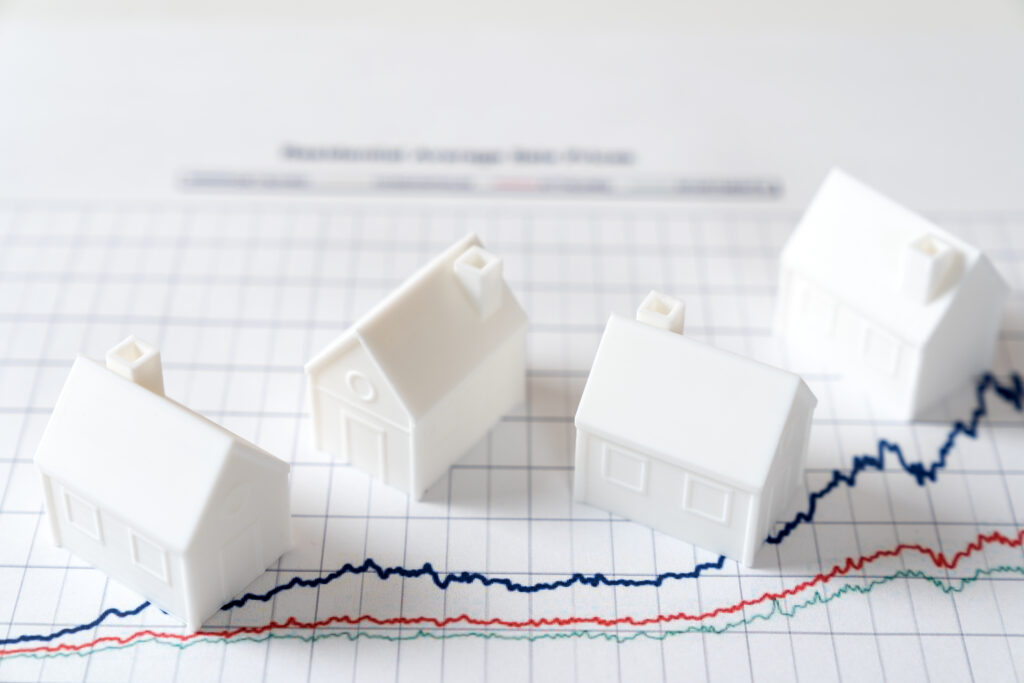Are You Ready for Homeownership? Let’s Find Out!
Buying a home is a major life decision. It is important to be sure you are ready before taking the plunge. If you’re curious to find out if now is the right time for you to become a homeowner, then you’ve come to the right place!
In this blog post, we’ll discuss the key factors you should consider when deciding if you’re ready for homeownership. Ready to find out? Let’s go!
Financial Stability

Financial Stability is a crucial factor to consider when deciding if you’re ready for homeownership. Owning a home comes with a range of financial responsibilities that you need to be prepared for.
Firstly, take a look at your current income and expenses. Are you able to comfortably afford your monthly bills and living expenses? It’s important to have a stable source of income that allows you to meet your financial obligations, such as mortgage payments, property taxes, insurance, and maintenance costs.
In addition, consider your credit score. Lenders will take your credit history into account when deciding whether to approve your mortgage application. A higher credit score can often result in better interest rates and loan terms, ultimately saving you money over the life of your mortgage. Take steps to improve your credit score if needed by paying your bills on time, reducing your debt, and keeping your credit utilization low.
Furthermore, having a sufficient down payment is essential. While there are loan programs that offer lower down payment options, having a larger down payment can help you secure a more favorable loan terms and lower monthly mortgage payments.
Finally, it’s important to have a financial cushion in case of unexpected expenses. Homeownership can come with unexpected repairs and maintenance costs, so having an emergency fund can provide peace of mind and ensure you can handle any unexpected expenses that arise.
Lifestyle Considerations

While financial stability is a key factor in determining if you’re ready for homeownership, it’s also important to consider how owning a home fits into your lifestyle.
Ask yourself the following questions to help gauge if now is the right time for you to become a homeowner.
Firstly, think about your long-term plans. Are you settled in your career or do you foresee any major changes in the near future, such as a job transfer or a growing family? Owning a home typically requires a longer commitment than renting, so it’s important to consider if you’re ready to put down roots in a particular location.
Next, consider your lifestyle preferences. Do you enjoy the freedom of having the flexibility to move or travel frequently? Renting may be more suitable if you prefer the ability to easily relocate or if you enjoy not having the responsibilities of home maintenance and repairs.
Additionally, think about the amount of time and effort you’re willing to put into home upkeep. Owning a home requires regular maintenance tasks, such as yard work, cleaning, and repairs. If you’re not ready or able to take on these responsibilities, it may be best to hold off on homeownership for now.
Finally, consider the financial impact of owning a home on your lifestyle. Are you willing to sacrifice certain discretionary expenses, such as dining out or vacations, to cover the costs associated with homeownership? Owning a home often comes with added expenses that may impact your budget and lifestyle choices.
By considering these lifestyle factors, you can better assess if now is the right time for you to become a homeowner. Remember, homeownership is a long-term commitment, so it’s important to ensure it aligns with your current and future lifestyle goals.
Homeownership Responsibilities

Owning a home comes with a set of responsibilities that you need to be prepared for.
It’s important to understand these responsibilities and ensure that you are ready to take them on before you make the decision to buy a home.
First and foremost, you will be responsible for the maintenance and upkeep of your property. This includes tasks such as mowing the lawn, cleaning gutters, and handling any necessary repairs. It’s important to have the time, resources, and willingness to take on these responsibilities. If you’re not a DIY enthusiast, you may need to budget for professional help or find a home with fewer maintenance requirements.
Another important responsibility is paying property taxes and insurance. As a homeowner, you will be responsible for paying property taxes to the local government. Additionally, you will need to have homeowner’s insurance to protect your investment. These costs can vary depending on the location and size of your home, so it’s important to budget for them accordingly.
You will also need to manage your finances effectively. This includes paying your mortgage on time, as well as budgeting for other housing-related expenses such as utilities and HOA fees. It’s crucial to have a clear understanding of your financial situation and ensure that you have the means to cover these costs consistently.
Lastly, as a homeowner, you become part of a community. This means respecting your neighbors, following community guidelines, and participating in any necessary homeowner association meetings or activities. It’s important to be a responsible member of your community and contribute positively to the neighborhood.
Real Estate Market Conditions

The real estate market is an important factor to consider when deciding if you’re ready for homeownership. Understanding the current market conditions can help you make a more informed decision and avoid potential pitfalls.
One key aspect to consider is the overall health of the housing market. Is it a buyer’s market or a seller’s market? A buyer’s market means there are more homes available than there are buyers, which can give you more negotiating power and potentially lower prices. On the other hand, a seller’s market means there are more buyers than there are homes, leading to increased competition and potentially higher prices. Understanding the current market conditions can help you determine if it’s a favorable time to buy.
Additionally, it’s important to consider the location-specific market conditions. Real estate is highly localized, so the conditions in your area may differ from the national trends. Research factors such as average home prices, inventory levels, and market appreciation in your desired location. This information can give you insight into the stability and potential for growth in the area.
Finally, consider the interest rates. Mortgage rates play a significant role in determining the affordability of homeownership. Low interest rates can make buying a home more affordable, while high interest rates can increase your monthly mortgage payments. Stay informed about current interest rates and consider how they may impact your budget.
By considering the real estate market conditions, you can better assess if it’s the right time to buy a home. Stay informed, research local market trends, and consult with a trusted real estate professional to ensure you make the most informed decision.
Preparing for Homeownership

Now that you’ve considered the key factors for homeownership, it’s time to start preparing.
Buying a home is a major life decision, so it’s important to be proactive and organized as you navigate the process. Here are some steps to help you prepare for homeownership.
First, take the time to save for a down payment. The larger your down payment, the more favorable loan terms and lower monthly mortgage payments you may be able to secure. Set a savings goal and create a budget to help you reach that goal.
Next, familiarize yourself with the homebuying process. Research different loan options, understand the steps involved in getting a mortgage, and learn about the types of homes available in your desired area. This knowledge will help you feel more confident and prepared when it’s time to start looking for a home.
It’s also important to work on improving your credit score. A higher credit score can lead to better interest rates and loan terms, potentially saving you thousands of dollars over the life of your mortgage. Pay your bills on time, reduce your debt, and keep your credit utilization low to boost your credit score.
Lastly, don’t forget to create a timeline for your homeownership journey. Set realistic goals for when you want to purchase a home and work backward to determine the steps you need to take along the way. This will help keep you focused and motivated as you move towards homeownership.
Ready to sell your property? Give us a call today and learn more about our professional photography services that can boost your property listing!
Plus, explore our virtual assistant coaching program to level up your business. Don’t forget to tune into our new podcast for even more valuable insights!
